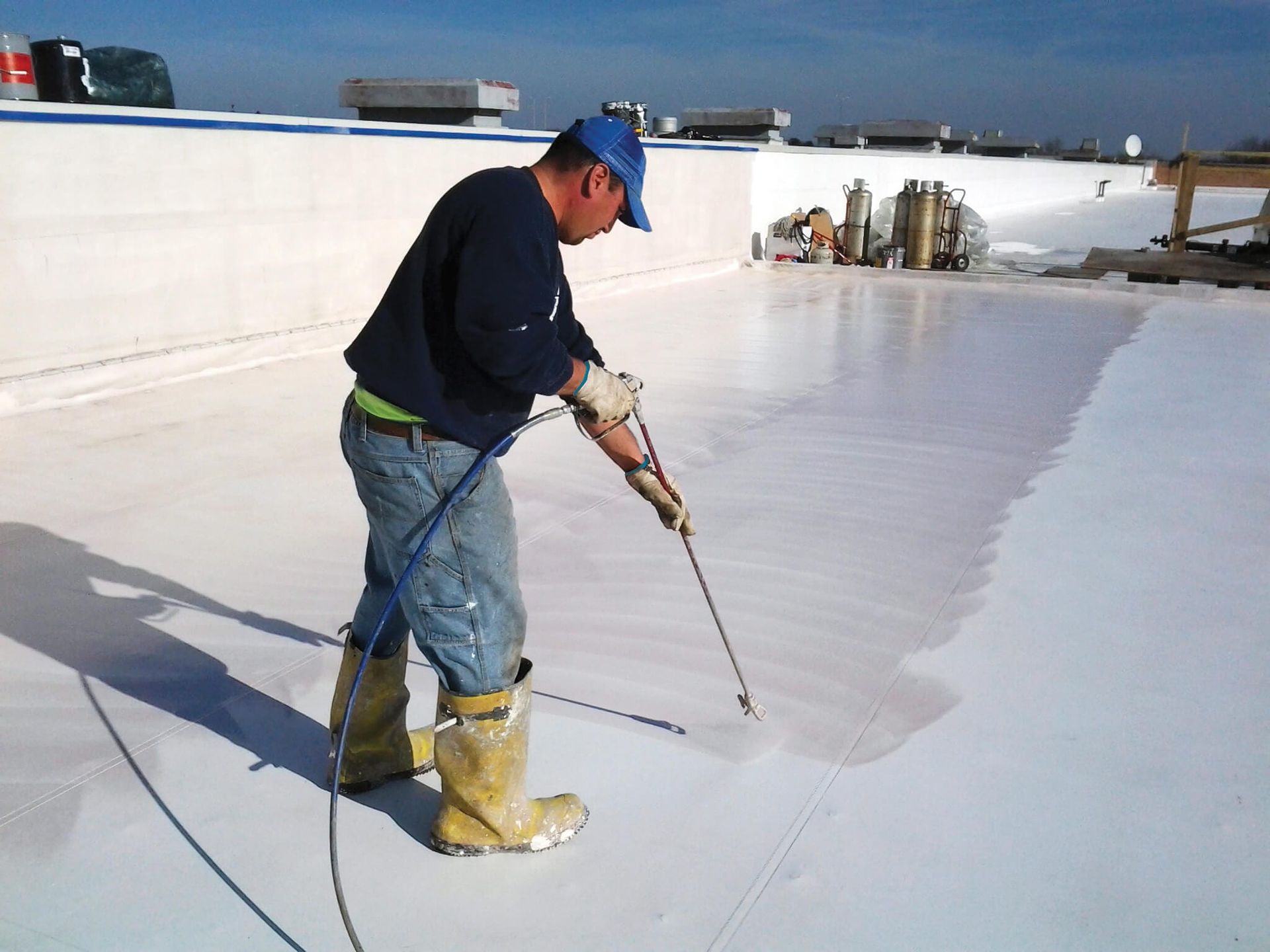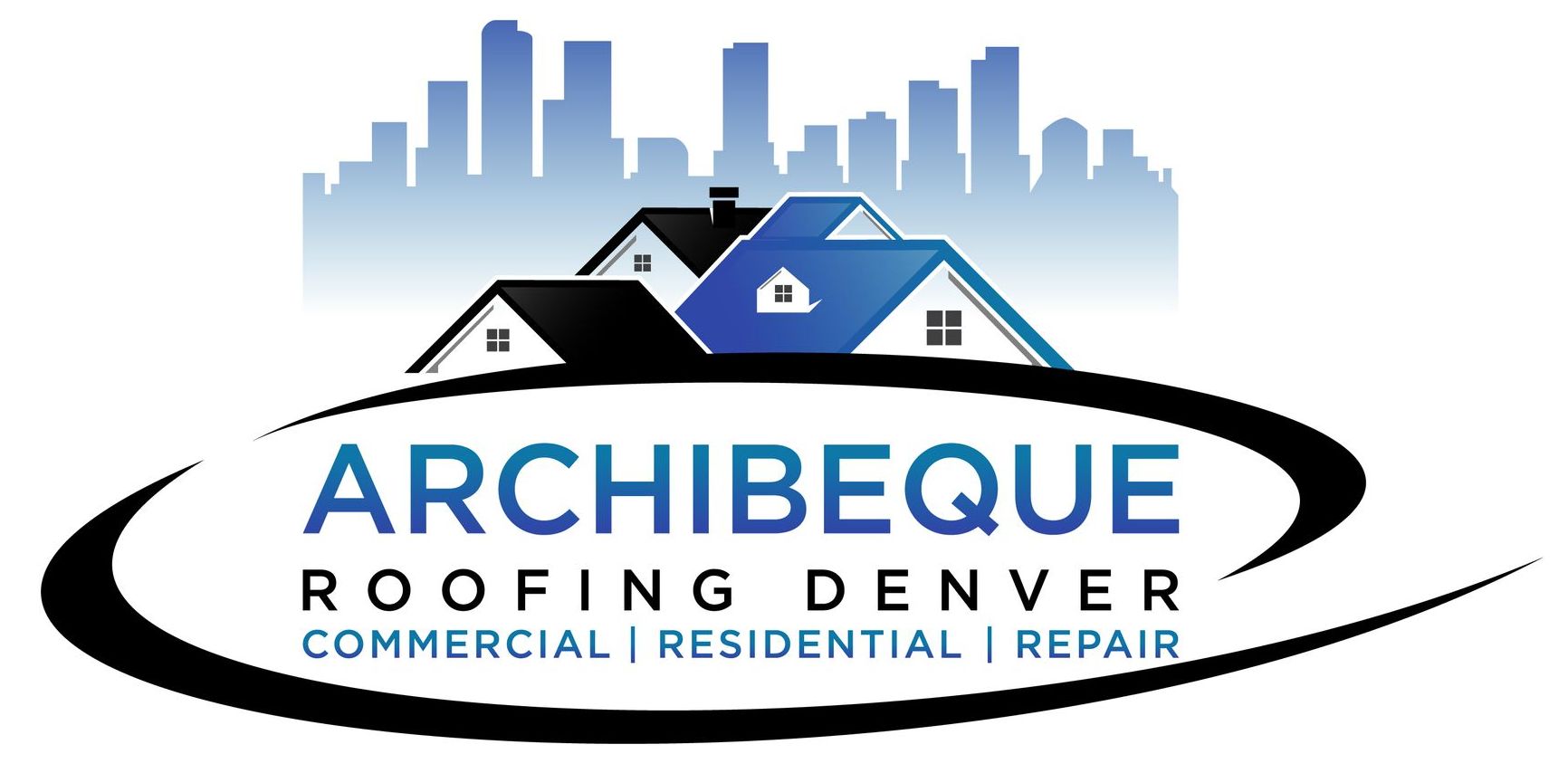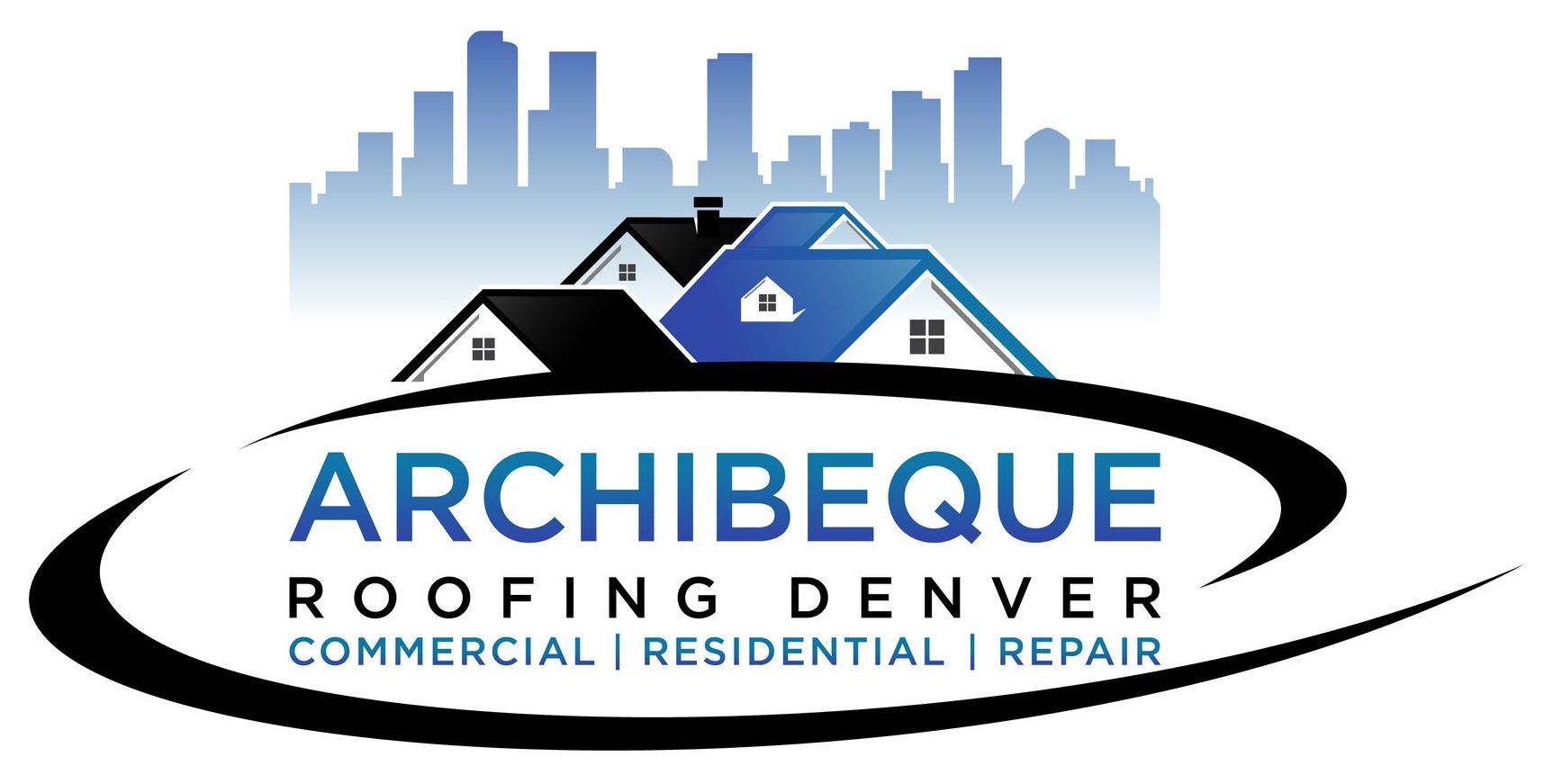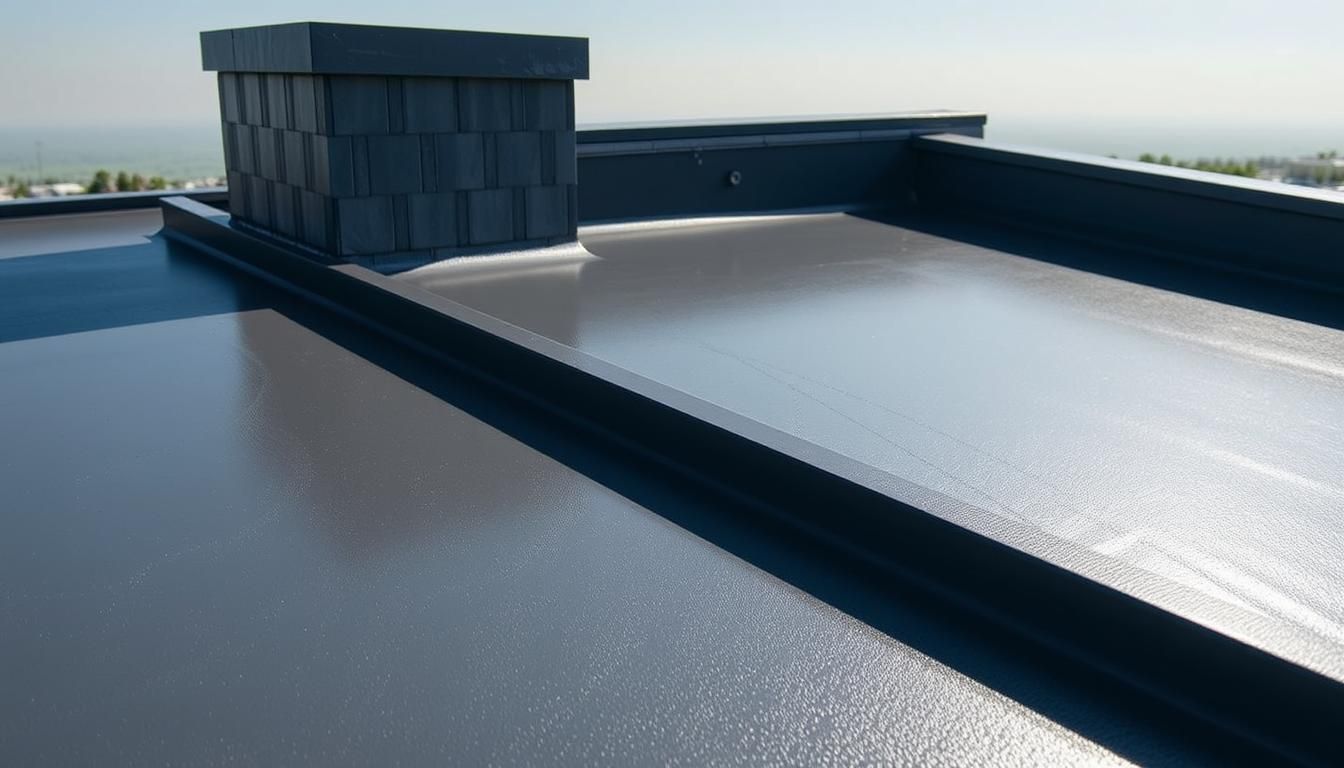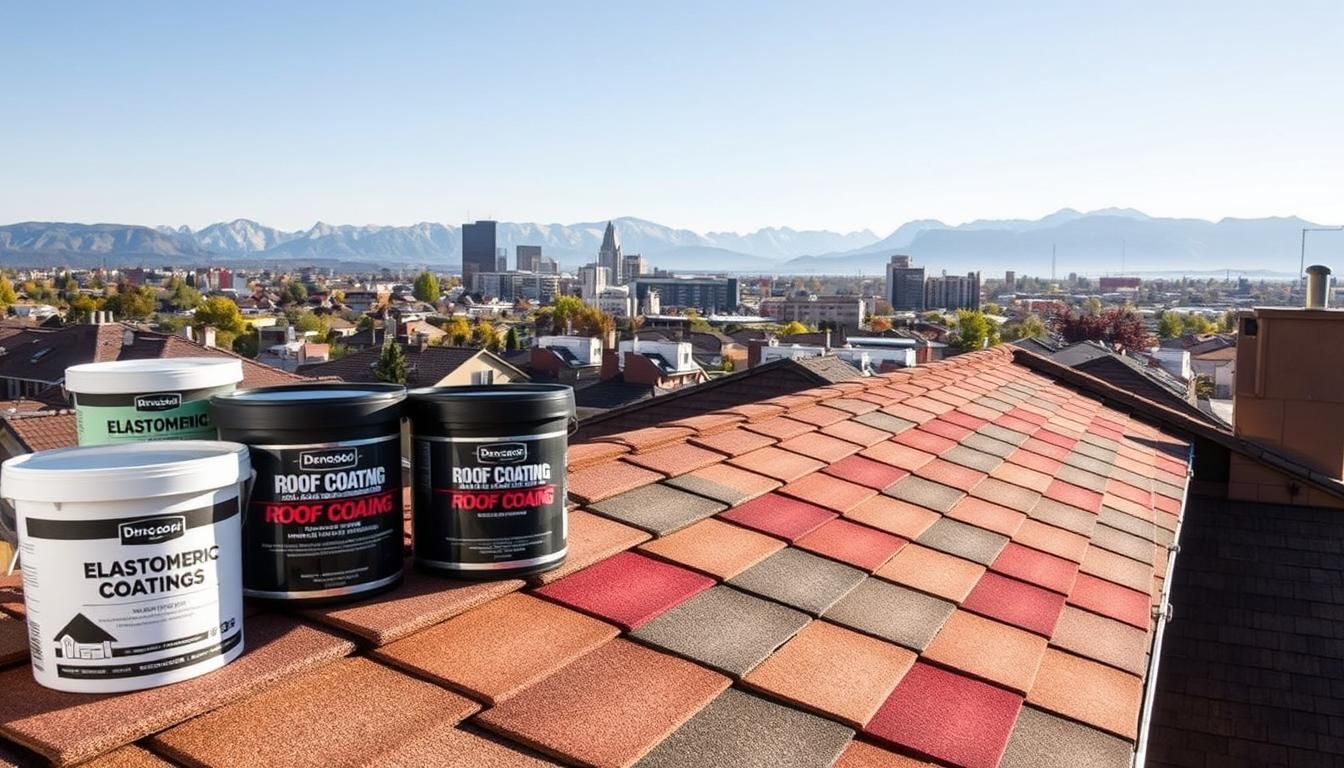
Denver homeowners looking to extend their roof’s lifespan often turn to roof coatings as a smart solution. These protective layers rejuvenate aging shingles, preventing leaks and reducing long-term damage. Unlike full replacements, coatings offer a budget-friendly way to enhance durability and curb appeal.
Archibeque Roofing, with over 35 years of local experience, specializes in assessing whether roof coatings are the right fit. Their team evaluates minor leaks, UV protection loss, and granule wear—key issues coatings address effectively. However, structural problems may require more extensive roofing repairs.
Professional inspections are crucial. Archibeque provides free assessments, ensuring homeowners make informed decisions. A well-applied coating can add years to your life roof, saving thousands in premature replacement costs.
Key Takeaways
- Roof coatings protect shingles and prevent leaks without full replacements.
- They restore UV resistance and reduce granule loss for better longevity.
- Coatings work best for minor damage, not major structural issues.
- Archibeque Roofing offers expert evaluations with 35+ years of experience.
- Free inspections help determine if coatings are the right choice.
What is Roof Coating and Why It Matters
Elastomeric coatings adapt to Denver’s extreme weather, shielding roofs effectively. These liquid-applied layers bond to shingles, sealing cracks and preventing leaks. Unlike temporary fixes, they offer lasting protection against rain, snow, and debris.
Elastomeric stands out for its flexibility. It expands and contracts with temperature swings, avoiding cracks common in rigid materials. Denver’s freeze-thaw cycles demand this adaptability to extend roof life.
UV resistance is another key benefit. Reflective coatings bounce sunlight away, reducing heat absorption. This keeps homes cooler and slashes energy bills by up to 20%.
Proper adhesion is critical. Surfaces must be clean and dry before application—dust or moisture weakens the bond. Professionals like Archibeque Roofing inspect for granule loss or algae first.
For homeowners, roof coatings mean fewer repairs and lower costs. They’re a smart investment for aging shingles needing a boost, not a full replacement.
What is The Best Roof Coating For Shingles?
Choosing the right protective layer for your shingles can significantly impact durability and energy efficiency. Different types of coatings address unique needs—from sealing cracks to reflecting sunlight. Below, we compare four top options for Denver’s weather conditions.
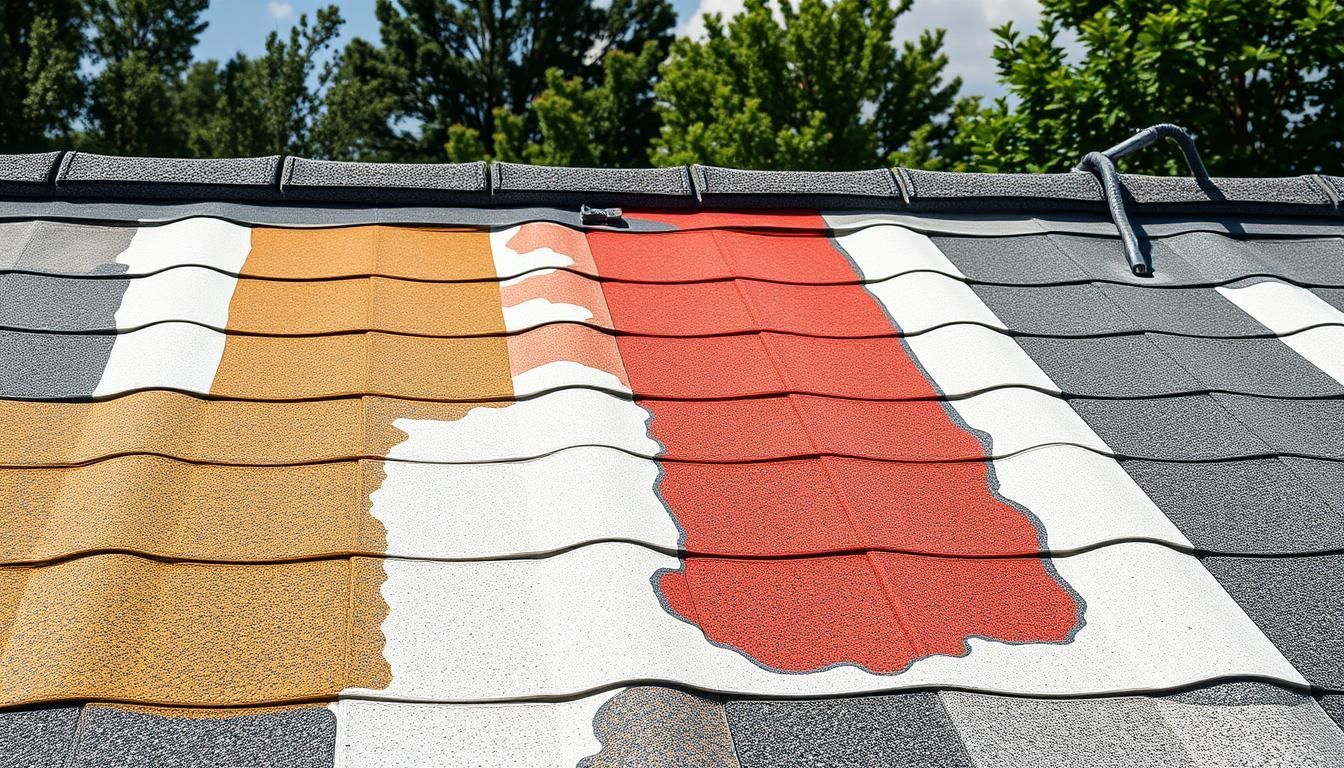
Elastomeric Roof Coating: Flexibility and Protection
Elastomeric excels in areas with temperature swings. Its stretchy formula seals hairline cracks and adapts to expansion. Unlike rigid type coatings, it’s breathable, preventing trapped moisture that damages shingles.
This best protection for freeze-thaw cycles also reduces energy costs by reflecting heat. Ideal for minor leaks but requires professional application for optimal adhesion.
Silicone Roof Coating: Durability and UV Resistance
Silicone outperforms others in UV resistance, lasting 10+ years with minimal maintenance. It handles ponding water better than acrylic or polyurethane coatings, making it a top pick for flat roofs.
Though pricier upfront, its longevity offsets replacement costs. Proper surface prep is critical—dust or debris weakens its bond.
Aluminum Roof Coating: Reflective and Leak-Resistant
Aluminum reflects 90% of sunlight, slashing cooling bills. Its metallic layer seals leaks but lacks flexibility, making it less ideal for extreme temperature shifts.
Best for older roofs needing heat reduction. Requires recoating every 3–5 years to maintain best protection.
Rubber Roof Coating: Affordable and Weatherproof
Rubber (acrylic-based) is a budget-friendly option with strong adhesion. It’s easy to apply and resists weather conditions like hail and heavy rain.
Downsides? Frequent reapplications (every 2–3 years) and limited color matching for shingles. A solid choice for short-term fixes.
Will Roof Coatings Stop Leaks?
Wondering if protective layers can fix your leaky shingles? Coatings like elastomeric and aluminum seal minor leaks but won’t solve structural damage like rotting decking or faulty flashing.
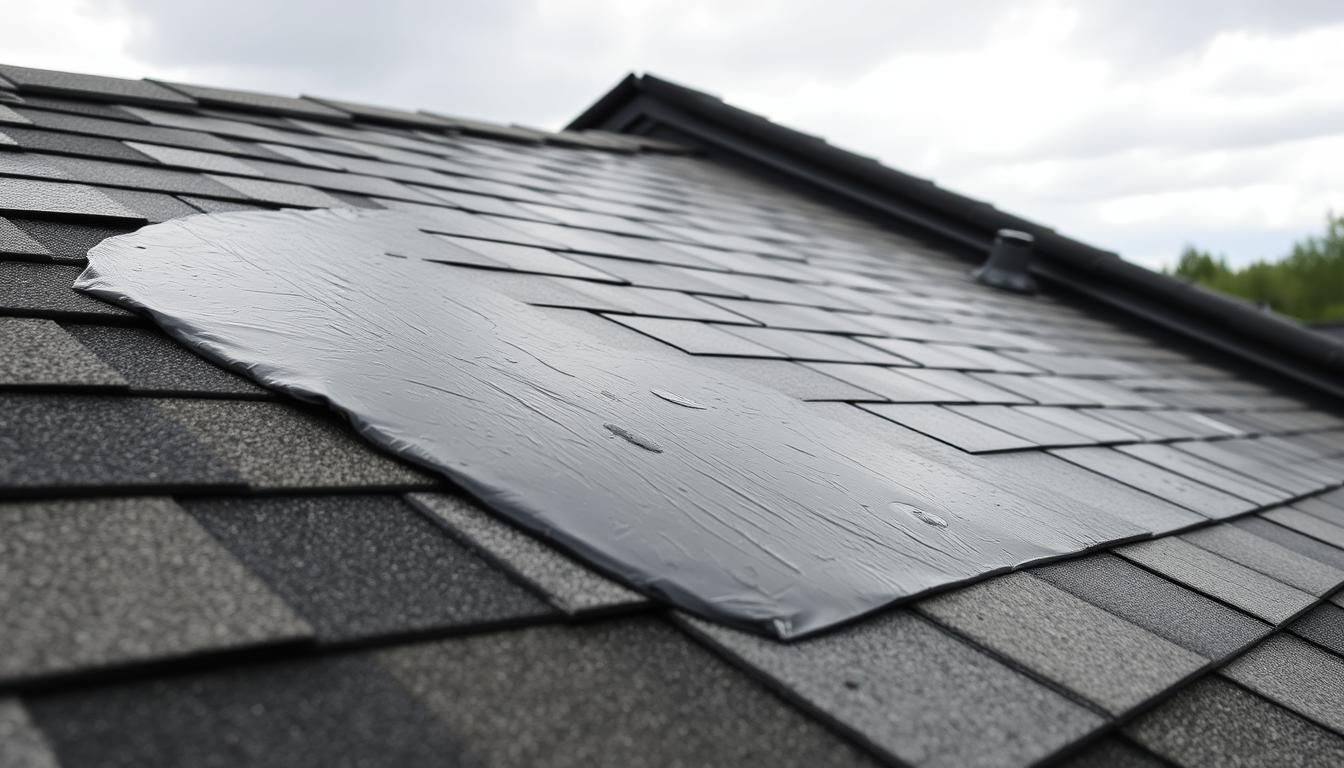
Elastomeric fills hairline cracks from wind-driven rain, while aluminum’s metallic layer blocks water penetration. Both need a solid base—broken or missing shingles must be replaced first.
Key limitations:
- Coatings can’t fix improper installation or sagging areas.
- Persistent leaks often signal deeper issues needing repairs.
- Professional inspections ensure your roof’s condition suits coating applications.
Archibeque Roofing’s diagnosis includes:
- Checking for granule loss or algae growth.
- Testing adhesion on clean, dry surfaces.
- Identifying if coatings will extend your roof’s life or if repairs are priority.
For minor water issues, coatings are a cost-effective fix. But major damage? A full replacement might be smarter.
How to Apply Roof Coatings: Step-by-Step
Proper application techniques make the difference between a lasting finish and frequent repairs. Whether you’re coating asphalt shingles or tackling minor leaks, precision ensures maximum protection. Follow these steps for optimal results.
Preparing Your Roof for Coating
Start with a clean, dry surface. Remove debris and scrub mold using a mix of bleach and TSP (trisodium phosphate). Rinse thoroughly—any residue weakens adhesion.
Repair cracks with acrylic caulk. Avoid silicone-based products; they repel coatings. Inspect for loose granules or damaged shingles, replacing them before proceeding.
Applying Elastomeric or Silicone Coatings
Elastomeric and silicone require a ½” nap roller for even coverage. Apply in cross-directions—first vertically, then horizontally—to fill gaps. Wait 3–4 hours between coats.
For elastomeric, work in small sections to prevent drying too fast. Silicone bonds best at 50–90°F; avoid application in direct sunlight.
Tips for Rubber and Aluminum Coatings
Rubber coatings dry quickly. Work in 4x4-foot sections, using a sprayer for thin layers. Recoat within 2 hours for seamless bonding.
Aluminum coatings need gentle stirring to maintain reflectivity. Apply with a brush for edges and a roller for broad areas. Avoid overworking—it dulls the metallic finish.
| Coating Type | Tool | Drying Time | Key Tip |
|---|---|---|---|
| Elastomeric | ½” nap roller | 3–4 hours | Cross-direction application |
| Silicone | Sprayer/roller | 4–6 hours | Avoid temperatures below 50°F |
| Rubber | Sprayer | 1–2 hours | Small sections only |
| Aluminum | Brush + roller | 2–3 hours | Minimal stirring |
Best Roof Coatings for Specific Needs
Not all protective layers work equally well for every structure—mobile homes and RVs need specialized solutions. These lightweight or mobile structures face unique challenges, from extreme climates to constant movement. The right coating boosts durability and energy efficiency without adding stress.
Ideal Protective Layers for Mobile Homes
Rubber coatings are the best coating for mobile homes due to their lightweight nature. They adhere well to thin roofs without causing stress cracks. Opt for white varieties to reflect sunlight in hot climates, reducing interior heat.
Key advantages:
- Prevents leaks without weighing down the structure.
- Easy to apply and budget-friendly for temporary or permanent setups.
- Resists cracking in freezing temperatures.
Top Choice for RV Protection
Silicone stands out as the best coating for RV roofs. Its UV resistance shields against constant sun exposure, while flexibility handles road vibrations. Unlike acrylics, it won’t degrade from frequent washing or rain.
| Feature | Mobile Home (Rubber) | RV (Silicone) |
|---|---|---|
| Weight | Lightweight | Moderate |
| UV Resistance | Good (with reflective colors) | Excellent |
| Lifespan | 2–3 years | 10+ years |
| Best For | Heat reduction, minor leaks | Long trips, extreme sun |
Conclusion
Protecting your home starts with the right roofing solution. Silicone offers unmatched durability, elastomeric adapts to weather shifts, and rubber provides budget-friendly repairs.
For persistent leaks, professional evaluations are key. Archibeque Roofing’s experts assess damage to extend your roof’s life—saving you costly replacements.
Ready to safeguard your home? Call Archibeque at (720) 375-5601 for a free inspection. Archibeque Roofing experts ensure lasting roofing performance.
Frequently Asked Questions About Roof Coatings for shingles
How does roof coating protect asphalt shingles?
A high-quality coating shields shingles from sun damage, water leaks, and harsh weather. It adds an extra layer of protection while improving energy efficiency.
Can silicone coatings extend the life of a roof?
Yes! Silicone coatings offer superior UV resistance and durability, helping roofs last longer by preventing cracks, fading, and weather-related wear.
Are elastomeric coatings good for shingle roofs?
Absolutely. Elastomeric coatings provide flexibility, sealing minor cracks and expanding with temperature changes—ideal for Denver’s varying weather conditions.
Do aluminum coatings help with cooling costs?
Definitely. Aluminum coatings reflect sunlight, reducing heat absorption and lowering cooling expenses during hot summers.
Will rubber coatings stop leaks on shingle roofs?
Rubber coatings create a waterproof barrier, sealing small leaks and preventing further water damage. However, major leaks may require repairs first.
How often should roof coatings be reapplied?
Most coatings last 10-15 years, but harsh climates or heavy wear may require reapplication sooner. Regular inspections help maintain peak performance.
Can I apply roof coating myself?
Yes, with proper prep—cleaning, repairing damage, and priming. Elastomeric and silicone coatings are DIY-friendly, but steep roofs may need professional help.
What’s the best coating for mobile homes or RVs?
Lightweight acrylic or silicone coatings work best, offering weatherproofing without adding excessive weight to structures.
